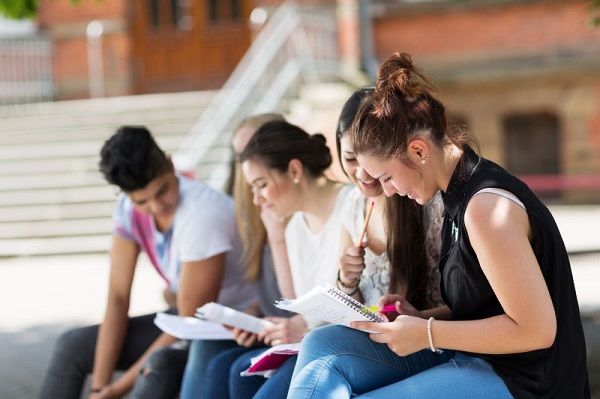Youth usually already see the usefulness of foreign language learning in their future occupational life, but they often associate it with coercion and school drill. So how to plan a course young students will not skip off and still bring about positive outcomes?
Remember that those are parents who pay for youth’s lessons. Sometimes they want their child to learn a new language, but not infrequently they treat the course in your school as private tutoring to help their kids to get better grades at regular school. Either will be happy if their teenagers learn with pleasure and start talking about the progress they make.
But to achieve progress, we need regularity.
But what can be done to avoid regularity being associated with boredom?
Develop a chart of parameters
First of all you must work with the your methodologist and educator to develop a chart of such parameters as: memory, concentration, abstract and logical thinking depending on age group or even time of the day. Their intensity in young minds may differ a lot already in the age group of 12-16-year-olds. Logical memory begins to dominate over mechanical one at this age. Also abstract thinking starts prevailing over concrete one. Afternoon classes, when youth are already after the entire intensive day, should also be designed differently than the morning ones.
This knowledge will help you to match proper methodologies, as well as develop the contents of teaching materials and type of exercises depending on concentration, memory or enhanced potential to take advantage of reading skills at this age. Do you think it is the right strategy to give more text reading and comprehension exercises to thirteen-year-olds, while assigning more activities drawing upon direct methodology to sixteen-year-olds? How do you think?
In the case of courses for youth, the teacher also must be particularly sensitive to emerging signs of mental and physical fatigue and have various activities and exercises adjusted to the level or topic of a given lesson, ready for such eventuality. Those can be props from classes for younger kids, such as pictures, movies, role-playing, and songs. Of course we don’t mean here the Red Riding Hood, but an analysis of a song by One Direction combined with joint singing – why not?
Require a sense of responsibility
This is also good age to demand from students some dose of responsibility for their work, which will consist in aiming for the best possible performance of the tasks. So we can readily assign fragments of self-learning tasks, even multi-stage ones, such as keeping a diary (this can be a diary of a fictional person or a favourite movie hero). The school can also come up with prizes or distinctions for the most committed students. And we need to remember about fair distribution of prizes not only among those who made no mistakes but also those who were most committed.
Choose topics and contents of materials
Also don’t forget that for teenagers the teacher’s authority is not as important as for younger kids. It is much more difficult to build and maintain it. It does not suffice to be nice and friendly. Youth have enhanced sensitivity to fairness of evaluation. Equally important are the chosen topics and contents of materials.
Give up on using textbooks. Your students are fed up with them at schools they came from. You can demonstrate each grammar or lexical topic on materials created by your teachers or methodologist, which will concern the topics young people talk about every day. Those can be social issues, daily life ones, and also those related to their cultural interests.
So be a good ear of your school, listen and watch; ideas will come by themselves, spontaneously – just as new customers will.

